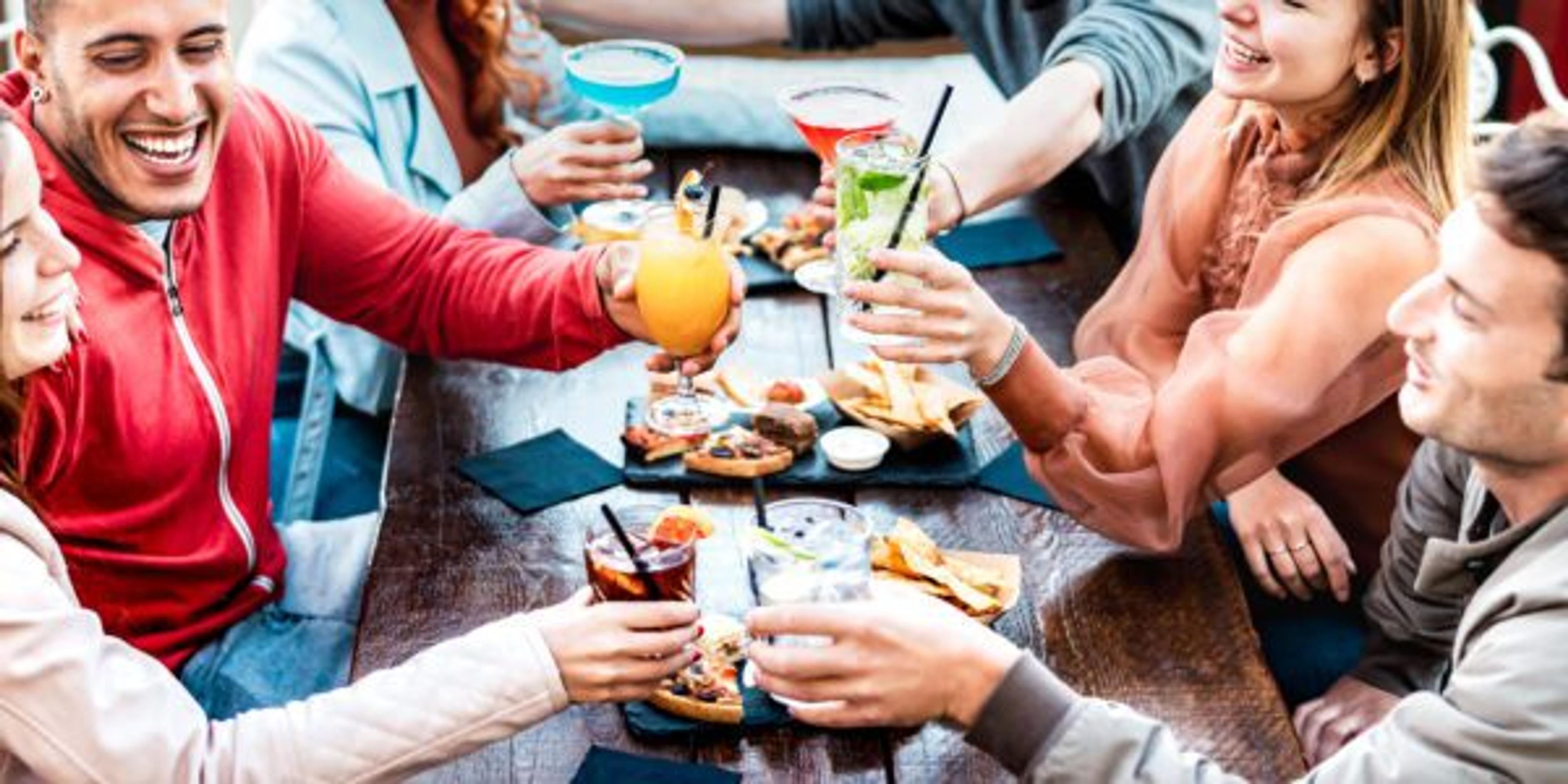Sober Curious Series: Spotlighting Michigan Dry Bars, Businesses and Social Networks
Jake Newby
| 4 min read

Alcohol is so ingrained in American culture that it’s almost bizarre to try and imagine society without it. Go ahead and give it a try. Picture social gatherings, restaurants, and sporting events completely free of booze. Despite its well-documented health risks, it’s a staple of socialization. It’s a social lubricant. It’s everywhere.
But a growing population is attempting to change its relationship with alcohol. In media and in social circles, it’s being unofficially dubbed the “sober curious” movement.
One in six American adults binge drink with 25% doing so at least once a week, according to the Centers for Disease Control and Prevention. Throwing back four, five, six, seven or eight drinks on a Saturday night can have adverse short and long-term effects on health. Drinking in excess can also lead to alcohol use disorder (AUD), which can put a damper on a person’s relationships, career and so much more. A desire to save more money and get better sleep are a few more reasons someone may want to change their relationship with alcohol. Those who are flirting with a lifestyle change are doing so for the sake of their health, wellness and mindfulness.
What is sober curious?
The “sober curious” movement is believed to have started in 2018, when author Ruby Warrington published a book on the subject. Sober curiosity means different things to different people, which is why the term is considered so ambiguous. It is generally considered a method of being mindful about drinking. It’s determining what triggers a person’s drinking, and what drinking means to them. It’s the experimentation of removing it from situations in their life where they otherwise would have a drink. Sober curiosity is a term that accounts for all gray-area drinkers who are revaluating how and why they drink.
“I heard a speaker one time talk about how if you think about your experience with a substance, whether it’s alcohol or a different drug, sober curious is you are thinking about a change process,” said Alyssa Turcsak, event organizer and leader of “Sober in Lansing, a chapter of the nationwide Sober City Movement” social network. “So, you are looking at a relationship with a drug and thinking about how it’s affecting you. The simple act of observing your behavior with a substance can be an act of sober curiosity.”
Alyssa’s story (VIDEO): “I Am Myself Again” – Finding Community in Recovery of a Substance Use Disorder
Whatever you want to call it, it’s influencing consumerism. Non-alcoholic beverage sales are on the rise, according to Nielsen, which states that between August 2021 and August 2022, total dollar sales of non-alcoholic drinks in the United States stood at $395 million, accounting for a 20.6% increase in purchases of non-alcoholic beer, wine and spirits in that timespan. And experts believe the N/A beverage category will grow by about 23% annually between 2022 and 2026.
Statistics like these show that while the no-alcohol market is still relatively small compared to the massive alcohol industry, more and more businesses and entrepreneurs are feeding the health trend by introducing and selling new products.
The Sober Curious Series: How the movement is impacting Michigan
From expansive mocktail menus in some of Detroit’s trendiest restaurants to non-alcoholic craft beers at popular Michigan breweries, the non-alcoholic trend has made its way to the mitten. And beyond consumerism, social groups and networks across the state are promoting alcohol-free social gatherings, activities, and events.
In 2023, A Healthier Michigan will explore both the consumer and human elements of sober curiosity in Michigan. We’ll spotlight non-alcoholic mobile bars, pop-ups, liquor(less) stores and the Detroit chapter of a nonalcoholic event curation company. We’ll pick the minds behind the breweries, bars and restaurants that are bolstering their N/A menus. We’ll learn about why drinking less alcohol appears to be of interest, especially among younger generations, and what they are doing to promote alcohol-free social events.
Learn a little more about the term “sober curious” and why it’s picked up steam over the last few years: What Does Sober Curious Mean?
Photo Credit: Getty Images





